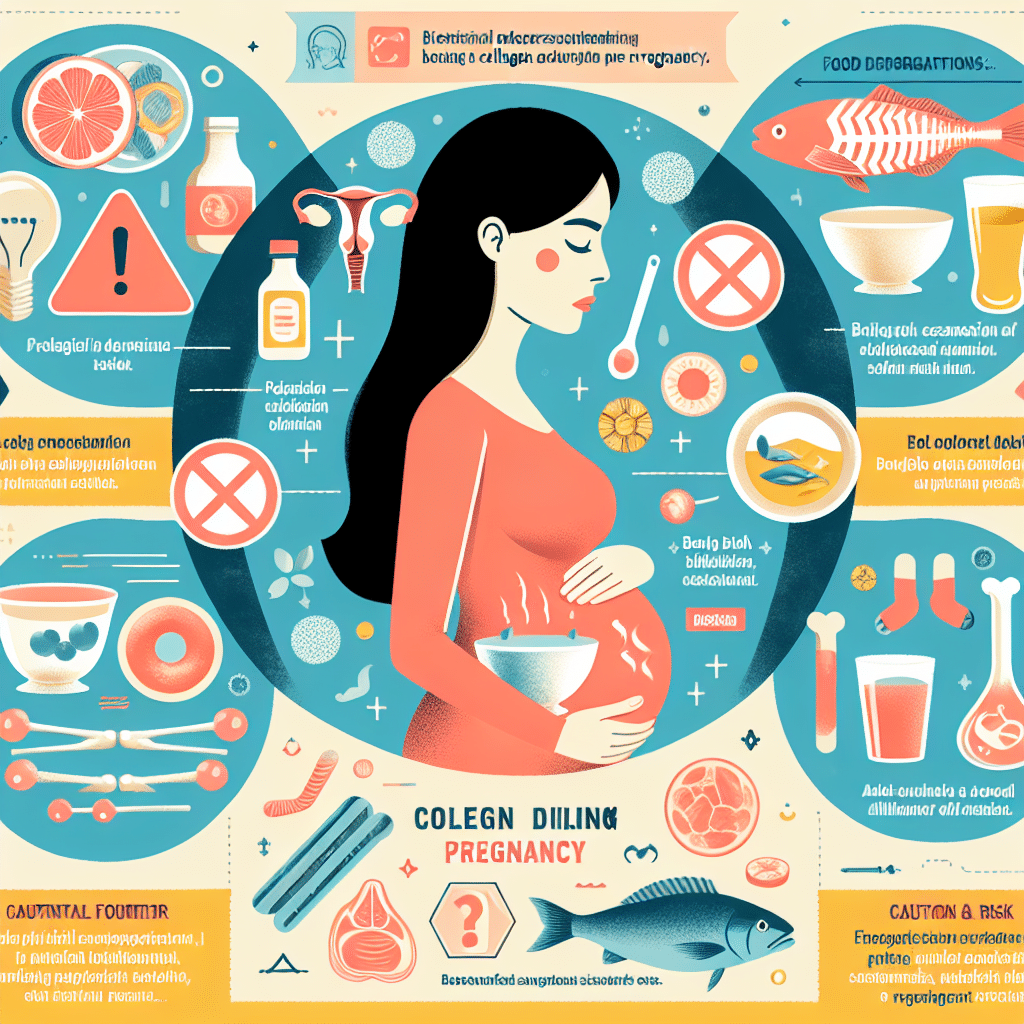Risk of Collagen During Pregnancy: What You Need to Know
-
Table of Contents
- Risk of Collagen Supplements During Pregnancy: Essential Insights
- Understanding Collagen and Its Role in the Body
- Collagen Supplements: Types and Sources
- The Potential Risks of Collagen Supplements During Pregnancy
- Allergic Reactions and Contaminants
- Lack of Regulatory Oversight
- Insufficient Research on Effects During Pregnancy
- Consulting Healthcare Providers
- Alternatives to Collagen Supplements for Pregnant Women
- Conclusion: Balancing Benefits and Risks
- Discover ETChem’s Protein Products
Risk of Collagen Supplements During Pregnancy: Essential Insights
Pregnancy is a time of heightened awareness about health and nutrition, with expectant mothers often seeking ways to support their own well-being and the development of their unborn child. Collagen supplements have gained popularity for their potential benefits to skin elasticity, joint health, and overall wellness. However, when it comes to taking collagen during pregnancy, it’s crucial to understand the risks and safety considerations.
Understanding Collagen and Its Role in the Body
Collagen is the most abundant protein in the human body, playing a critical role in maintaining the structure and integrity of skin, bones, tendons, and other connective tissues. As we age, our bodies produce less collagen, which can lead to signs of aging such as wrinkles and joint pain. Supplementing with collagen has been suggested to help counteract these effects.
Collagen Supplements: Types and Sources
Collagen supplements come in various forms, including powders, capsules, and liquids. They are derived from different sources such as bovine (cow), porcine (pig), marine (fish), and chicken. Each type has its own set of amino acid profiles and potential health benefits.
- Bovine collagen is rich in types I and III collagen, which are beneficial for skin, hair, and nails.
- Marine collagen, primarily type I, is known for its easy absorbability and benefits to skin health.
- Chicken collagen, which is rich in type II collagen, is often used for joint and cartilage support.
The Potential Risks of Collagen Supplements During Pregnancy
While collagen supplements can be beneficial, there are potential risks associated with their use during pregnancy that must be considered.
Allergic Reactions and Contaminants
Some collagen supplements may contain allergens or contaminants that could pose a risk to the mother or fetus. For example, marine collagen derived from fish could be problematic for those with fish allergies. Additionally, concerns about heavy metals or other contaminants in animal-derived collagen products could be a cause for caution.
Lack of Regulatory Oversight
Dietary supplements, including collagen, are not strictly regulated by the Food and Drug Administration (FDA). This means that the safety, quality, and efficacy of these products can vary widely between brands and batches.
Insufficient Research on Effects During Pregnancy
There is a lack of comprehensive research on the safety of collagen supplements during pregnancy. Without robust clinical trials, it’s difficult to assess the potential impact on fetal development or pregnancy outcomes.
Consulting Healthcare Providers
It’s essential for pregnant women to consult with their healthcare providers before taking any supplements, including collagen. A healthcare provider can offer personalized advice based on the individual’s medical history and the specifics of their pregnancy.
Alternatives to Collagen Supplements for Pregnant Women
For those looking to support their collagen levels naturally during pregnancy, there are several dietary and lifestyle choices that can help:
- Eating a balanced diet rich in vitamin C, proline, glycine, and copper, which are nutrients necessary for collagen production.
- Including protein-rich foods like lean meats, dairy, legumes, and nuts in the diet.
- Avoiding excessive sun exposure, which can break down collagen in the skin.
- Staying hydrated to maintain skin elasticity.
Conclusion: Balancing Benefits and Risks
While collagen supplements may offer various health benefits, the potential risks during pregnancy cannot be overlooked. Pregnant women should exercise caution and seek professional medical advice before incorporating collagen supplements into their routine. By focusing on a nutrient-rich diet and healthy lifestyle choices, expectant mothers can support their body’s natural collagen production and promote overall well-being for themselves and their babies.
Discover ETChem’s Protein Products
If you’re considering collagen supplements outside of pregnancy or for postpartum recovery, ETChem offers a range of high-quality protein products. Their extensive selection includes marine collagen, bovine collagen, and other types, all characterized by neutral taste and instant solubility. ETChem’s products cater to various industries, ensuring that you can find the right collagen solution for your needs.
About ETChem:
ETChem, a reputable Chinese Collagen factory manufacturer and supplier, is renowned for producing, stocking, exporting, and delivering the highest quality collagens. They include marine collagen, fish collagen, bovine collagen, chicken collagen, type I collagen, type II collagen and type III collagen etc. Their offerings, characterized by a neutral taste, instant solubility attributes, cater to a diverse range of industries. They serve nutraceutical, pharmaceutical, cosmeceutical, veterinary, as well as food and beverage finished product distributors, traders, and manufacturers across Europe, USA, Canada, Australia, Thailand, Japan, Korea, Brazil, and Chile, among others.
ETChem specialization includes exporting and delivering tailor-made collagen powder and finished collagen nutritional supplements. Their extensive product range covers sectors like Food and Beverage, Sports Nutrition, Weight Management, Dietary Supplements, Health and Wellness Products, ensuring comprehensive solutions to meet all your protein needs.
As a trusted company by leading global food and beverage brands and Fortune 500 companies, ETChem reinforces China’s reputation in the global arena. For more information or to sample their products, please contact them and email karen(at)et-chem.com today.


